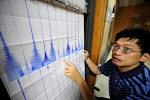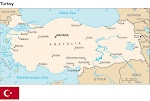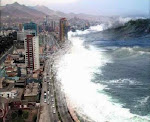 BEIJING - Almost nonstop, the uncensored opinions of Chinese citizens are popping up online, sent by text and instant message across a country shaken by its worst earthquake in three decades."Why were most of those killed in the earthquake children?" one post asked Thursday on FanFou, a microblogging site."How many donations will really reach the disaster area? This is doubtful," read another.China is now home to the world's largest number of Internet and mobile phone users, and their hunger for quake news is forcing the government to let information flow in ways it hasn't before.A fast-moving network of text messages, instant messages and blogs has been a powerful source of firsthand accounts of the disaster, as well as pleas for help and even passionate criticism of rescue efforts."I don't want to use the word transparent, but it's less censored, an almost free flow of discussion," said Xiao Qiang, a journalism professor at the University of California, Berkeley, and director of the China Internet Project, which monitors and translates Chinese Web sites.China is well known for controlling the flow of information."We didn't know that hundreds of thousands of lives passed away during the Tangshan earthquake in 1976 until many years after the disaster took place," sociologist Zheng Yefu said in a commentary last week in the Southern Metropolis News.But word about Monday's magnitude 7.9 quake spread quickly on Web sites and microblogging services, in which users share short bursts of information through text and instant messages. The services also publish the messages online."It all depends on the users; we don't edit it," FanFou founder Wang Xin said. "We just gather their words together."A string of crises over the last few months — including crippling snowstorms and Tibetan protests — has taught the government a few lessons, Berkeley's Xiao said.Government officials held a rare, real-time online exchange with ordinary Chinese on Friday to answer angry questions about why so many schools collapsed in the quake."They understand better now that to react slowly or to cover up in the Internet age is a bad idea," Xiao said in a telephone interview.But the government is still monitoring the online conversation. Seventeen people have been detained since the earthquake, warned or forced to write apologies for online messages that "spread false information, made sensational statements and sapped public confidence," the state-run news agency, Xinhua, reported Thursday.Police also warned of the spread of scam text messages asking for quake donations.
BEIJING - Almost nonstop, the uncensored opinions of Chinese citizens are popping up online, sent by text and instant message across a country shaken by its worst earthquake in three decades."Why were most of those killed in the earthquake children?" one post asked Thursday on FanFou, a microblogging site."How many donations will really reach the disaster area? This is doubtful," read another.China is now home to the world's largest number of Internet and mobile phone users, and their hunger for quake news is forcing the government to let information flow in ways it hasn't before.A fast-moving network of text messages, instant messages and blogs has been a powerful source of firsthand accounts of the disaster, as well as pleas for help and even passionate criticism of rescue efforts."I don't want to use the word transparent, but it's less censored, an almost free flow of discussion," said Xiao Qiang, a journalism professor at the University of California, Berkeley, and director of the China Internet Project, which monitors and translates Chinese Web sites.China is well known for controlling the flow of information."We didn't know that hundreds of thousands of lives passed away during the Tangshan earthquake in 1976 until many years after the disaster took place," sociologist Zheng Yefu said in a commentary last week in the Southern Metropolis News.But word about Monday's magnitude 7.9 quake spread quickly on Web sites and microblogging services, in which users share short bursts of information through text and instant messages. The services also publish the messages online."It all depends on the users; we don't edit it," FanFou founder Wang Xin said. "We just gather their words together."A string of crises over the last few months — including crippling snowstorms and Tibetan protests — has taught the government a few lessons, Berkeley's Xiao said.Government officials held a rare, real-time online exchange with ordinary Chinese on Friday to answer angry questions about why so many schools collapsed in the quake."They understand better now that to react slowly or to cover up in the Internet age is a bad idea," Xiao said in a telephone interview.But the government is still monitoring the online conversation. Seventeen people have been detained since the earthquake, warned or forced to write apologies for online messages that "spread false information, made sensational statements and sapped public confidence," the state-run news agency, Xinhua, reported Thursday.Police also warned of the spread of scam text messages asking for quake donations.To read more go to:
http://news.yahoo.com/s/ap/20080518/ap_on_re_as/china_the_quake_online
As in the days of Noah...



















.jpg)


.bmp)
No comments:
Post a Comment